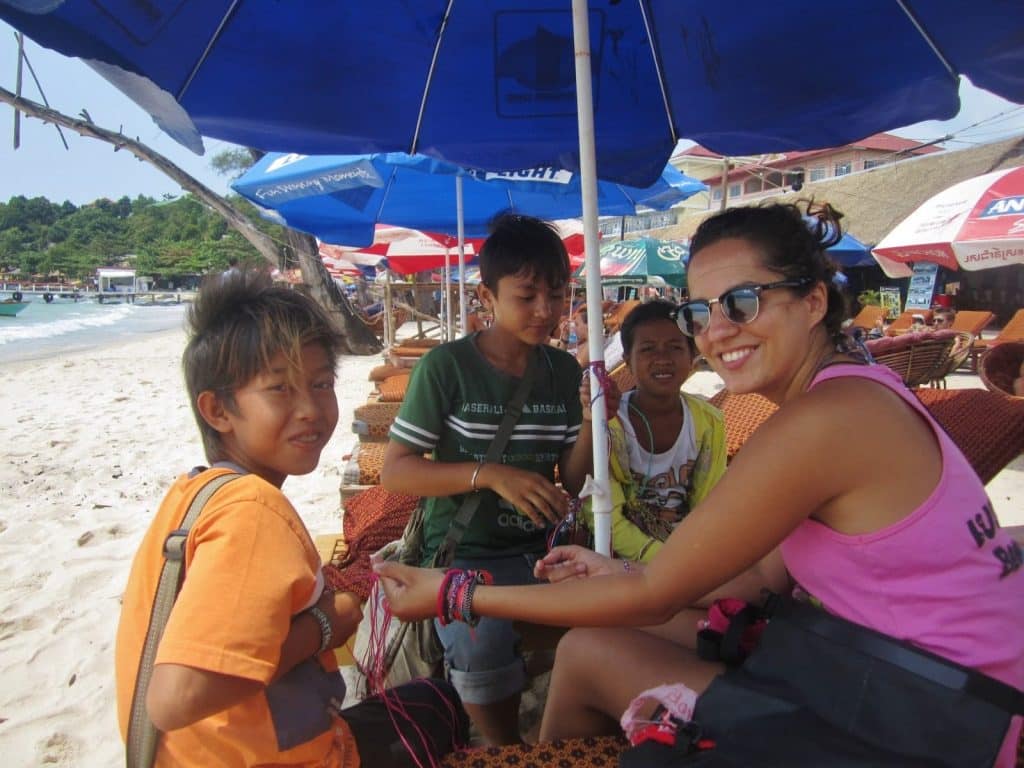Adventurous Kate contains affiliate links. If you make a purchase through these links, I will earn a commission at no extra cost to you. Thanks!
How do you deal with heartbreaking poverty and child beggars? This week’s letter writer finds out.
Hi Kate, I love your blog. I’m an 18 yr old girl just about to embark on my first travel adventure with my sister, who’s 23 to se asia, thailand, cambodia, vietnam, laos. Also India.
What are your tips for dealing with poverty and child beggars?
It’s very sad to see poor and hungry children in the streets, but it’s unfortunately something you see around the world. When you have so much more than them, it can feel like you have the power to save them. So how do you deal with those feelings?
I don’t give to child beggars and I also don’t buy anything from children.
Why? Because when you give money to children or buy things from children, you support a system that keeps children out of school and at the hands of an adult who possibly subjects them to abuse. These kids are not business masterminds. The adult in charge keeps most of their money.
I didn’t always do this, as you can see in the photo above. In Sihanoukville, Cambodia, I bought a lot of bracelets from the kids on the beach — in part because the kids were sweet, charming, and hilarious. It took time before I realized that my actions were keeping a system in place that keeps kids from getting an education until they age out of bracelet-selling and have no choice but to keep working on the beach because they don’t know how to do anything else.
Additionally, I’m careful where I donate my money, and I’m wary of “voluntourism” organizations. There are orphanages that exist solely to extract donations out of sympathetic tourists, keeping the money for themselves instead of improving the children’s lives.
So what CAN you do?
Find a local charity that helps children, and donate money there. There are many charities in this part of the world, but not all of them are equal. Visit Charity Navigator and do your research before donating.
Donate supplies to a school. Pens and notebooks are usually in demand.
And above all, please don’t buy from children. Don’t buy roses from kids roaming the streets at night, long after they should be in bed. Don’t let those hilarious kids talk you into buying a bracelet, even after they start weaving one in front of you.
And when a tiny Cambodian girl with torn clothing and dirt on her face tries to get you to buy postcards at Angkor Wat, resist the temptation to buy everything she has on her. Her parents know that dressing her that way sells more postcards.
Want Kate to answer your travel question? Email kate [at] adventurouskate [dot] com and perhaps yours will be answered next week!
